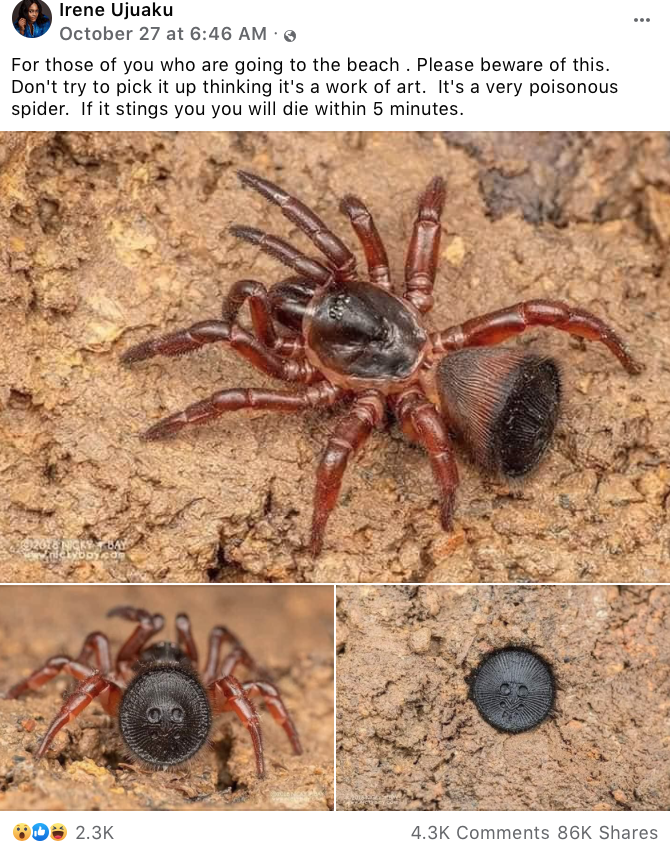
Is this trapdoor spider poisonous, and can it kill human beings who are stung by it "within 5 minutes"? No, that's not true: Trapdoor spiders don't produce poison, only venom to subdue prey -- which does not include humans. McGill University Natural Resource Sciences Professor Christopher Buddle calls a post "certainly false" in its claim that this spider is deadly.
The claim appeared in a Facebook post (archived here) on October 27, 2021. Above the images of a peculiar-looking spider, the caption says:
For those of you who are going to the beach . Please beware of this. Don't try to pick it up thinking it's a work of art. It's a very poisonous spider. If it stings you you will die within 5 minutes.
This is how the Facebook post looked on November 3, 2021:
(Source: Facebook screenshot taken on Wed November 3 23:24:21 2021 UTC)
Buddle identified the spider in a November 3, 2021, email, saying:
It's part of the family of 'trap door spiders,' many species in the group but genus is likely Ummidia
Concerning whether or not the trapdoor spider is poisonous, he said:
Wrong terminology! The correct question is 'is it venomous' since spiders aren't generally poisonous
It is venomous to its prey, so yes it has venom suited to subdue it prey, but it's prey is not humans!
So, it's not a species 'of medical importance' to humans
Specifically, whether or not a human being could "die within 5 minutes" of being stung by a trapdoor spider, he said:
It would probably hurt quite a bit, but for a healthy person, reaction is likely minimal, perhaps local swelling and some pain. (Note: I'm not a medical doctor)
In my thinking, the only bite/sting from an arthropod (insect or spider) that might result in such a rapid reaction is perhaps if someone is allergic to wasp/bee stings i.e., anaphylactic reaction. But that's an insect thing, not a spider thing ...
The images belong to photographer Nicky Bay, who has clarified information about this particular spider since 2019.
The images in this post display a logo with his name and the year when the photo was most likely captured. A Yandex reverse image search using the keywords "Nicky Bay" reveal a February 26, 2020, tweet in which Bay shares the photos and debunks falsehoods about his shots and the spider -- again.
More information about the Ctenizidae trapdoor spider can be found here.
















